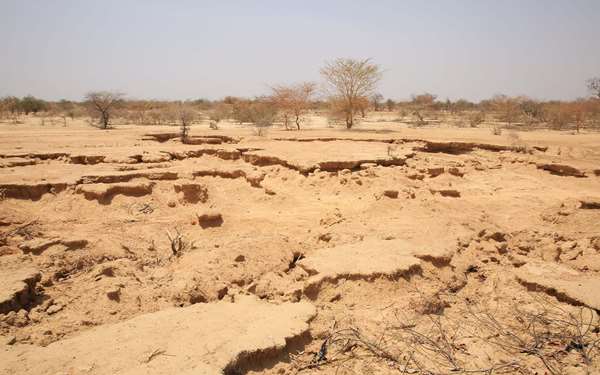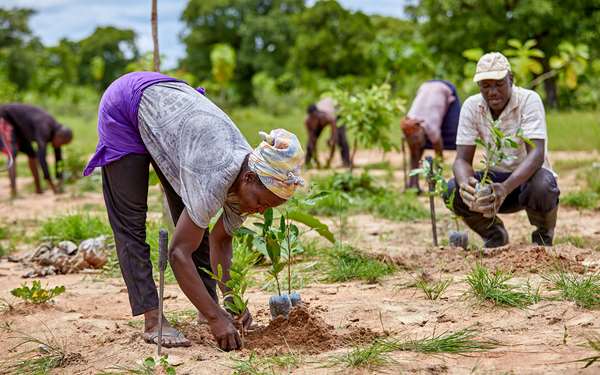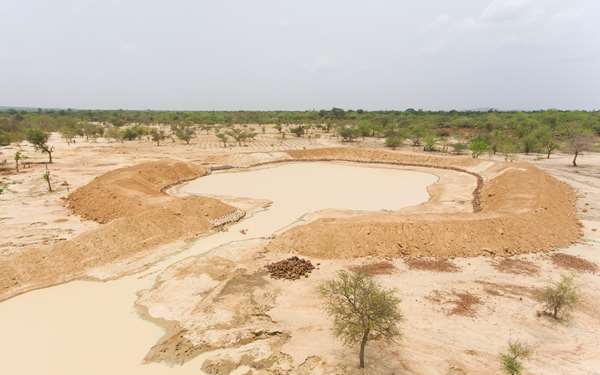UN Decade on Ecosystem Restoration
How Tree Aid is contributing towards the United Nations Decade on Ecosystem Restoration.Our natural world is under huge threat from the climate crisis, deforestation and land degradation. Restoring and protecting our Earth’s vital ecosystems has never been more important.

What is the UN Decade on Ecosystem Restoration?
The United Nations General Assembly declared 2021–2030 the Decade on Ecosystem Restoration. It is an urgent call for countries all around the world to restore and care for our ecosystems and grow a better future for both people and our planet. And it comes at just the right time – running alongside the Sustainable Development Goals and the timeline identified by scientists as the last chance to prevent irreversible and catastrophic climate change.
Degradation in Africa
Africa is the only continent where deforestation rates are not only increasing but are in fact four times the world average. It is also the continent most affected by desertification – the degradation of dryland areas. On top of this, the impacts of the climate crisis are causing land to degrade at an even more alarming rate.
As Africa’s drylands become more degraded and land loses its fertility, soil that was once rich in nutrients is no longer able to support crops and trees. People living here can’t grow enough food to eat and sell and poverty is increasing. Communities face a daily struggle for survival in one of the most challenging climates on Earth.

Trees are a solution
Trees are essential for healthy ecosystems. They keep land fertile, store water and absorb carbon dioxide – a cause of the climate crisis. That’s why we support communities with training in tree planting, regeneration and management, helping them to reforest the ecosystems they rely upon.
Trees encourage and support life in the drylands of Africa, supporting both flora and fauna to grow and thrive. Every tree we grow helps to restore biodiversity, improve the soil and increase ecosystem resilience to floods and droughts. And with more healthy trees around, the land is more productive and crops can grow better. Plus the trees themselves can provide people with fruits, nuts and seeds to eat and sell.


Returning soil to fertility
In Africa’s degraded ecosystems, soil that was once fertile is no longer able to support plant life. We support communities with training and tools to help them improve the productivity of the land and manage it in a way that stops more fertile soil being lost.
We share sustainable land management methods like digging zai pits – holes filled with compost that conserve water and nutrients. This training helps communities to restore degraded land today, and protect the land for the future.
Conserving water
In the dryland ecoystems of Africa’s Sahel region, water shortages are a major issue for much of the year. Without water to support trees and crops, the cycle of land degradation only worsens. But we are helping conserve water for use all year by growing trees that conserve water and providing tools and training for water conservation techniques.
For example, in Burkina Faso, we've built huge water-conserving pits called ‘boulis’ - each one holds around 2,500m³ of water, the same amount as an Olympic swimming pool! This provides a reservoir of water all year round, despite limited rainfall and high temperatures. Over time, as soil around the boulis improves, the ecosystem is revitalised and life begins to thrive.

The bigger movement
The UN Decade on Ecosystem Restoration is part of a bigger global movement of change. It fits in with existing movements and commitments such as the Great Green Wall and the Sustainable Development Goals – and Tree Aid is proud to be contributing both of these powerful initiatives.
Our work contributes to several of the United Nations Sustainable Development Goals, including goal 13 about climate action and goal 15 about managing life on land sustainably. We also work with the African Union and the UN Convention to Combat Desertification to grow the Great Green Wall.



